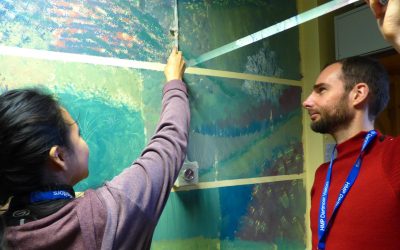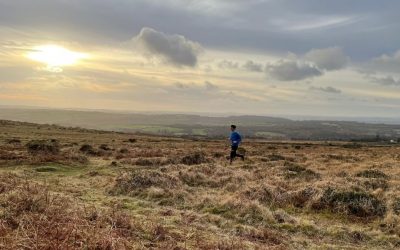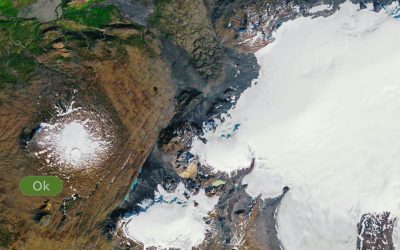overview
- Be introduced to methods of practice led inquiry that involve physical engagement with the more-than-human world
- Develop your own active, physical practice that can be used to help communities embrace their own connections with place
start date: april
full Term dates, 2023-24
Welcome Week: 19-21 April 2023 (at Schumacher College)
Module 1: 24 Apr – 10 May (residential) and 29 May – 16 Jun (online)
Module 2: 10 – 26 May (residential) and 19 Jun – 7 Jul (online)
Module 3: 10 – 21 July (residential)
Field Trip: 24 – 28 July (Ireland)
Module 4: 25 September – 13 October: (residential)
Dissertation Deadline: 25 January 2024
full Term dates, 2024-25
Coming soon.
Learning pathways
Some qualifications are offered part-time – these are indicated below.
To get the most out of their course and of being part of our learning community, many students choose a fully immersive experience for the residential taught periods of their course, staying on our stunning 1,200 campus on the banks of the River Dart with full board accommodation.
MAster's (ft/pt; 180 credits)
A low-residency programme with 4 x 30-credit modules and 1 x 60-credit Dissertation or Major Project module.
The course is available full time over one year or part-time over two years.
Postgraduate Diploma (ft/pt; 120 credits)
A full-time (1 year) or part-time programme (2 years, UK students only) with 4 x 30 credit modules. Students taking the full-time option will study all four modules during the first two terms. For full details on part-time pathways, please contact us.
Postgraduate Certificate (60 credits)
A full-time programme with 2 x 30 credit modules. Students will study both modules during term one.
First module only (30 credits)
The first module from this course can be studied on a standalone basis, with 30 credits allocated per module.
To apply for the accredited single module option, apply in the usual way, selecting the ‘Module One’ option during the application process.
Short Course (unaccredited)
course content
This programme explores the rich intersection of embodied practice, environmental philosophy, and ecological thinking. Literally grounded in the experience of its participants to place, this programme has the capacity to reshape our relationship to the broader world, to nature, and to ourselves. We live in an era when climate change has become broadly accepted, yet the majority of economic, social, and legislative systems have not substantively changed to meet the challenges of a warming climate.
This programme gives students the tools to bring about that change, by helping communities and individuals reconnect with the places in which they live through physical activity, and through this fresh engagement with the lived environments provides opportunities to reframe our relationship with the more-than-human world.
By drawing on the expertise of existing faculty and staff at Schumacher College, specialists in movement ecology, critical mobility studies, embodiment and ecosomatics, systems thinking, and on world-renowned experts in a wide range of physical pursuits – from long-distance walkers, ultrarunners, wild swimmers, dancers and choreographers, yoga practitioners, movement and wellbeing practitioners – this course will braid together, for the first time in an MA programme, students’ physical, corporeal engagement with the world with diverse threads of ecophilosophy, mindfulness, and ecological thinking.
Schumacher College and its founder, Satish Kumar, were recently awarded the RSA 2023 Bicentenary Medal for an “outstanding, regenerative and impactful contribution ….. enabling people, places and planet to flourish in harmony.”
The location of the College, close to both Dartmoor National Park and the South Devon coastline, presents a range of outdoor opportunities for students enrolled in the programme including access to trail running, canoeing, kayaking, rock climbing, cycling, swimming, both within the Dartington’s 1,200 acre estate and the surrounding area. Partnerships with on and off campus organisations and individuals include Dynamic Adventures CIC Devon; Rickey Gates (ultrarunner and author); The River Collective, Sirona Horsemanship, ISSC (the Institute for the Study of Somatic Communication), The Harmony Institute Health Initiative, and the Movement Network South West.
We run regular online live chat sessions with the programme team, where you can meet the lecturers and ask them your questions about studying on the course. Register for a live chat via the events section below.
Who is this programme for: anyone else interested exploring physical activities through a combination of practice and philosophy, including movement-based artists, outdoor adventure educators, somatically informed practitioners, creative facilitators and ecologically engaged activists.
The programme is open to everyone, with all levels of ability, experience, and comfort moving in the outdoors. The course draws on a breadth of expertise and experience and on a diversity of perspectives and will focus on student’s personal embodied experience, helping them to develop their own movement practice.
Throughout the programme, students will:
- Cultivate their relationship with place through movement
- Write about immersive experiences
- Interrogate their perceived boundaries
- Develop resilience in their engagement with place, self, and others
- Explore a range of techniques with which to mediate their relationships with self through action
- Develop ecologically attuned and reciprocal conversations with humans and more than humans
- Redefine adventure and embody practice
The course will also help you gain practical skills in developing your own projects in the real world, working on ecological and activist issues that incorporate movement-based thinking as an approach to real change.
Past students from the MME program have gone on to work with Trash Free Trails, Devon Mental Health Alliance, The Campaign for National Parks, and Participate Arts.
The programme team have created an introductory reading list for the subject, which we highly recommend to anyone interested in getting a feel for the kinds of ideas that will be explored on the course. Click here to browse the list.
programme structure & modules
Module 1: Ecology and Embodiment – 30 credits
This module foregrounds the role of movement in ecological systems, from migration to climate adaptation to ocean currents to isostatic rebound and more. Students will engage in guided individual projects throughout the module, culminating in a final practical project that interweaves an embodied connection to place with a deeper understanding of the dynamic nature of the systems in which we are all already a part. The physiology of movement will be an ongoing theme that grounds our conversations.
Module 2: Movement and Mind – 30 credits
By foregrounding the embodied engagement of students with natural places through a variety of different physical means, this module lays the foundation for Movement, Mind, and Ecology. The rigorous intellectual and personal inquiry set the tone and rhythm for the entire programme. In this module, students will be introduced to methods of practice led inquiry that involve physical engagement with the more-than-human world. Workshops with some of the world’s leading athletes, adventurers, place-based practitioners, and thinkers will help students make connections between the body and the world around us.
Module 3: Mediating Boundaries – 30 credits
This module emphasizes seminar-style student-led class sessions to explicitly bring student experience and expertise to the classroom. The focus of the module on exploring, understanding, and challenging boundaries (between self and other, human and non-human, individual and community, and between different ecological systems) is itself mediated by ongoing physical practice. Through this guided practice, students will use a phenomenological lens with which to explore the limits of the self.
Module 4: Performing Place – 30 credits
In this final taught module, students will develop their own community-based active, physical practice that can be used to help communities embrace their own connections with place through direct action and corporeal engagement. Examples could include: developing a community walking group, starting a meditation practice for a local gardening group, adding an element of ecological education to an existing athletic event, developing and deploying ways to challenge ableist conceptions of physical activity.
Module 5: Dissertation or Final Project – 60 credits
An individual project.
entry requirements
Qualification(s) required for entry to the MA
BA/BSc (Honours) Degree A first degree
Where the first degree is not a 2.1, or in an unrelated subject, further support of the application or experience may be required.
Other non-standard awards or experience
A willingness engage with the field of Movement, Mind and Ecology. Candidates will be considered with prior credited learning and prior experiences subject to interview.* Candidates will be considered with appropriate APL (UoP Regs) subject to interview.
Interview requirements
All applicants are required to attend an interview, either at the College or online. During the interview we will look for: evidence of intellectual clarity during interview; a clearly formulated purpose for taking the course; focused interests and a clear understanding of the ethos and philosophy of the College; readiness and ability to live and work in a communal setting.
*For further information please contact our admissions team at admissions@dartington.org.
fees
For full details on our fees, plus information about scholarships, student loans and bursaries, click here.
staff

Dr Rachel Sweeney
rachel.sweeney@dartington.org
Rachel is Head of Schumacher College Programmes and Programme Lead and Senior Lecturer for Movement, Mind, and Ecology.
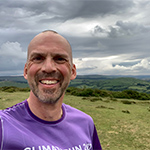
Dr Pavel Cenkl
pavel.cenkl@dartington.org
Pavel is Head of Schumacher College, and oversees Programme Development for Movement, Mind, and Ecology.
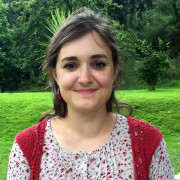
Dr Marie Hale
careers
live chats & open days
latest news & blogs
Colleges’ Bursary Campaign gets a boost from funding partners
Schumacher College and Dartington School of Arts are increasing financial support for students from less well-off backgrounds who want to study at the colleges.
Leading outdoor organisations join our Movement, Mind, and Ecology programme
We’re delighted to announce our official partnership with two leading outdoor organisations to our Movement, Mind, and Ecology programme, in addition to our newly-appointed Programme Lead, Dr Rachel Sweeney.
Moving over imagined ground
Dr Pavel Cenkl, our Director of Learning, blogs on his experience exploring the undulating gravel highlands between Iceland’s Vatnajokull and Hofsjokull icecaps.


